
St. Anne: The Heartbeat of Guernsey's Charm
Welcome to St. Anne, a picturesque town nestled on the island of Alderney in Guernsey. This quaint and charming location is the perfect getaway for those seeking tranquility and a taste of history. With its cobbled streets, pastel-colored houses, and stunning coastal views, St. Anne offers a unique blend of natural beauty and cultural heritage. Begin your exploration at the historic St. Anne's Church, an architectural gem with a rich history dating back to the 13th century. The church's serene ambiance and intricate stained glass windows make it a must-visit. Stroll through the town's narrow lanes, where you'll encounter friendly locals and discover boutique shops, cozy cafes, and traditional pubs. Nature enthusiasts will revel in the breathtaking landscapes surrounding St. Anne. The island's coastal paths provide spectacular views of the English Channel and are perfect for leisurely walks or invigorating hikes. Don't miss a visit to the famous Alderney Lighthouse, which offers panoramic vistas and a glimpse into the island's maritime history. For a deeper dive into the local culture, visit the Alderney Museum, where you can learn about the island's fascinating past, from Roman times to the German occupation during World War II. The museum's exhibits are both informative and engaging, making it a great stop for history buffs. Whether you're seeking relaxation, adventure, or a bit of both, St. Anne in Guernsey promises an unforgettable experience. The town's warm hospitality and scenic beauty will leave you enchanted and eager to return.
Local tips in St. Anne
- Visit St. Anne's Church early in the morning to avoid crowds and enjoy the peaceful ambiance.
- Take a guided walking tour to learn about the town's history and hidden gems from a local perspective.
- Pack comfortable walking shoes for exploring the town's cobbled streets and coastal paths.
- Try the local seafood at one of the town's traditional pubs for an authentic culinary experience.
- Check the weather forecast before planning outdoor activities, as the island's weather can be unpredictable.
St. Anne: The Heartbeat of Guernsey's Charm
Welcome to St. Anne, a picturesque town nestled on the island of Alderney in Guernsey. This quaint and charming location is the perfect getaway for those seeking tranquility and a taste of history. With its cobbled streets, pastel-colored houses, and stunning coastal views, St. Anne offers a unique blend of natural beauty and cultural heritage. Begin your exploration at the historic St. Anne's Church, an architectural gem with a rich history dating back to the 13th century. The church's serene ambiance and intricate stained glass windows make it a must-visit. Stroll through the town's narrow lanes, where you'll encounter friendly locals and discover boutique shops, cozy cafes, and traditional pubs. Nature enthusiasts will revel in the breathtaking landscapes surrounding St. Anne. The island's coastal paths provide spectacular views of the English Channel and are perfect for leisurely walks or invigorating hikes. Don't miss a visit to the famous Alderney Lighthouse, which offers panoramic vistas and a glimpse into the island's maritime history. For a deeper dive into the local culture, visit the Alderney Museum, where you can learn about the island's fascinating past, from Roman times to the German occupation during World War II. The museum's exhibits are both informative and engaging, making it a great stop for history buffs. Whether you're seeking relaxation, adventure, or a bit of both, St. Anne in Guernsey promises an unforgettable experience. The town's warm hospitality and scenic beauty will leave you enchanted and eager to return.
When is the best time to go to St. Anne?
Iconic landmarks you can’t miss
Castle Cornet
Explore the rich history and breathtaking views at Castle Cornet, Guernsey's iconic coastal fortress filled with fascinating exhibits and serene gardens.
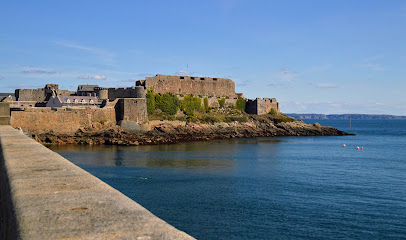
Hauteville - Victor Hugo House
Explore the enchanting Hauteville House, the former home of Victor Hugo, where literature and history intertwine in a captivating museum experience.
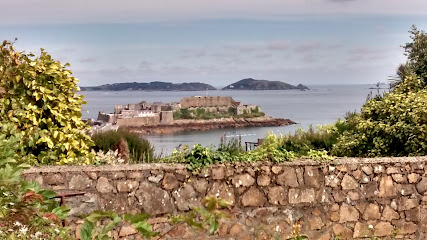
Sausmarez Manor
Discover the rich history and stunning gardens of Sausmarez Manor, a must-visit attraction in Guernsey for art enthusiasts and history lovers alike.
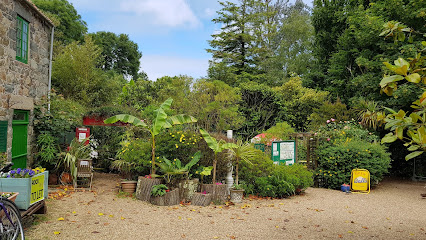
German Underground Hospital
Discover the German Underground Hospital in Guernsey, a captivating World War II historical site revealing the island's rich and complex past.
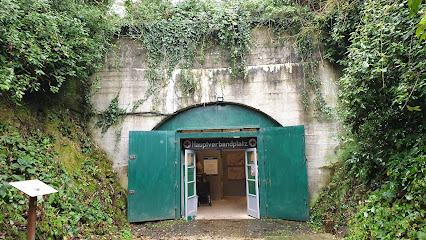
Grandes Rocques Beach
Experience the serene beauty of Grandes Rocques Beach in Guernsey, where golden sands meet crystal-clear waters for an unforgettable seaside getaway.
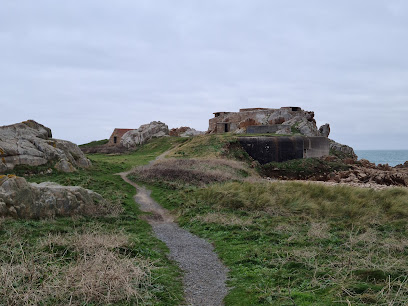
Fort Grey Shipwreck Museum
Explore maritime history at Fort Grey Shipwreck Museum in Guernsey, showcasing artifacts and stories from legendary shipwrecks along the coast.
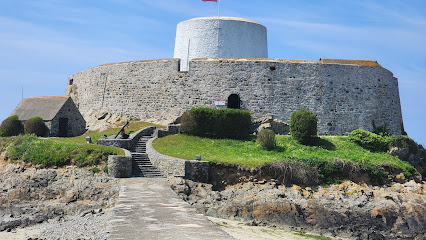
The Georgian House
Discover the charm and elegance of The Georgian House in St Anne, Guernsey, where comfort meets local culture in a stunning setting.
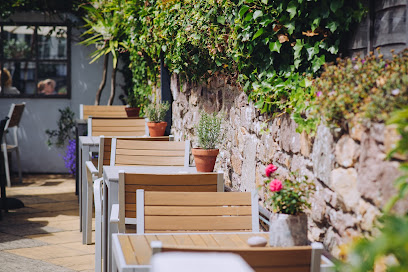
Fort Hommet
Explore Fort Hommet, Guernsey – a historical fortress offering breathtaking coastal views and a glimpse into the island's rich military past.
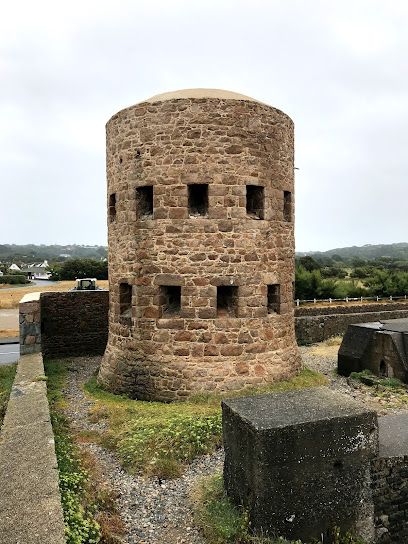
Dehus Dolmen
Discover the enchanting Dehus Dolmen in Guernsey, a prehistoric monument that unveils the island's ancient history and cultural significance.
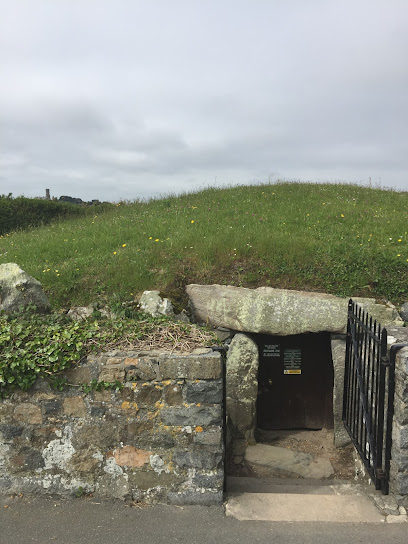
Vale Castle
Explore the historical marvel of Vale Castle in Guernsey, where ancient architecture meets breathtaking coastal views.
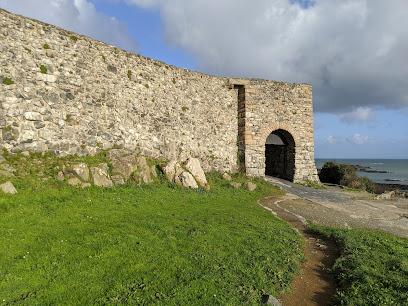
Prince Albert Statue
Explore the Prince Albert Statue in Guernsey: A stunning tribute to history, art, and the enduring spirit of the island.
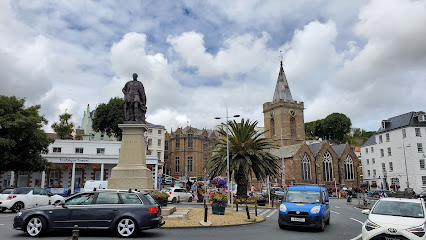
Rousse Tower
Explore Rousse Tower, a historical landmark in Guernsey offering breathtaking views and insights into the island's maritime history.
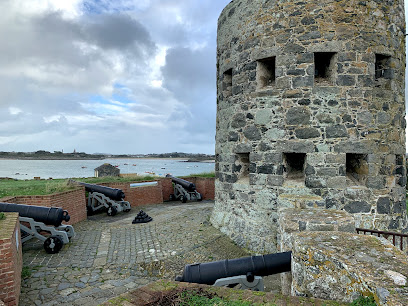
Victoria Tower
Explore Victoria Tower in Guernsey - a historical landmark offering stunning views and rich history, perfect for curious travelers and history enthusiasts.
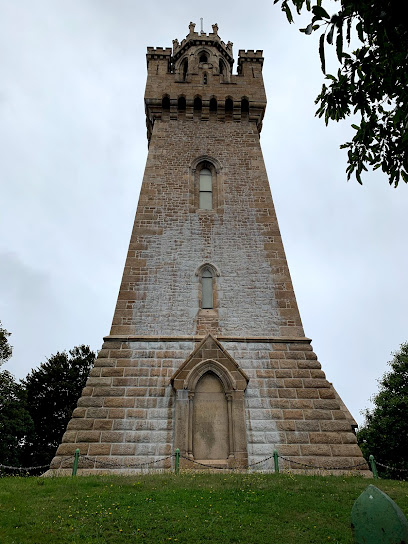
Alderney Museum
Explore Alderney Museum and immerse yourself in the island's captivating history and cultural heritage through engaging exhibits and artifacts.
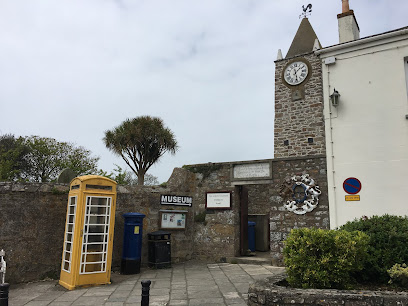
Le Creux es Faies
Explore the ancient mysteries of Le Creux es Faies, a prehistoric tomb in Guernsey that offers a unique glimpse into the island's rich history and stunning landscapes.
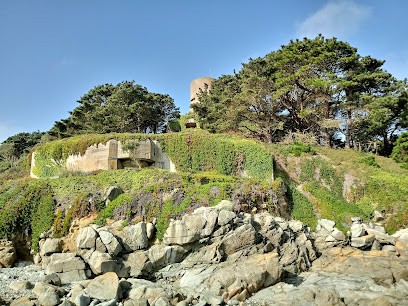
Unmissable attractions to see
Jersey War Tunnels
Discover the compelling history of Jersey at the War Tunnels, an immersive museum chronicling life during World War II and the island's remarkable resilience.
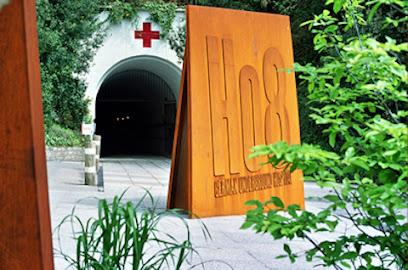
Mont Orgueil Castle
Explore Mont Orgueil Castle in Gorey, Jersey - a historical fortress with stunning views and captivating stories from the past.
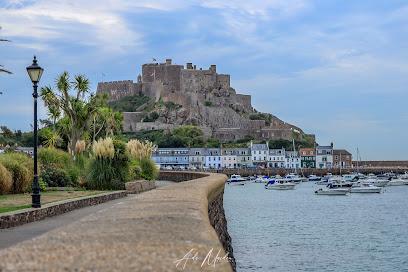
St Brelade's Bay
Discover the serene beauty of St Brelade's Bay in Jersey, where golden sands meet crystal-clear waters, perfect for relaxation and adventure.
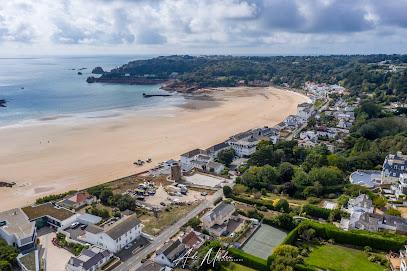
Castle Cornet
Discover the captivating history and breathtaking views at Castle Cornet, Guernsey's iconic fortress overlooking St. Peter Port.
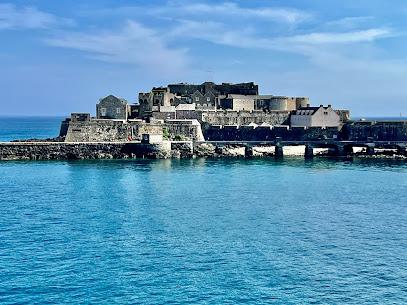
Jersey Pearl
Explore Jersey Pearl, where exquisite jewelry meets rich cultural experiences in a stunning coastal setting.
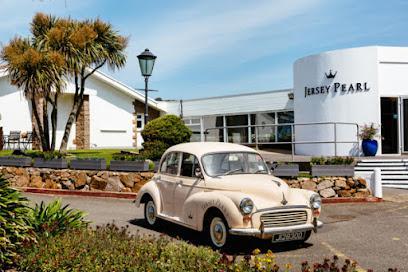
Les Jardins de la Mer
Discover the beauty of Les Jardins de la Mer, a stunning floral garden along St Helier's coast, perfect for relaxation and breathtaking views.
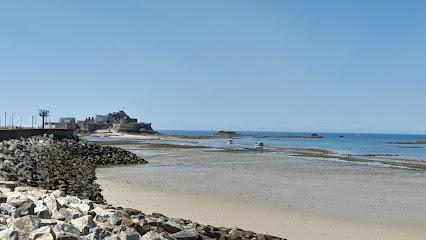
Maritime Museum & Occupation Tapestry Gallery
Explore Jersey's maritime history and the stories of resilience at the Maritime Museum & Occupation Tapestry Gallery in St Helier.
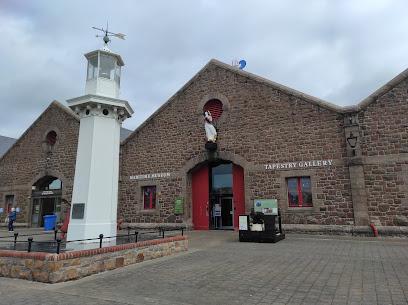
La Hougue Bie Museum
Explore the ancient history of Jersey at La Hougue Bie Museum, home to prehistoric treasures and captivating exhibits that bring the island's past to life.
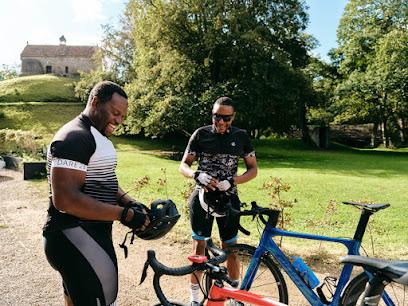
Jersey Museum, Art Gallery and Victorian House
Explore Jersey's cultural gems at the Jersey Museum and Art Gallery, where history and art converge for an unforgettable experience.
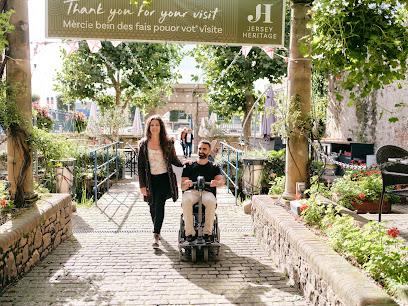
Hauteville House
Explore Hauteville House, the inspiring home of Victor Hugo in Guernsey, where literature and history beautifully intertwine.
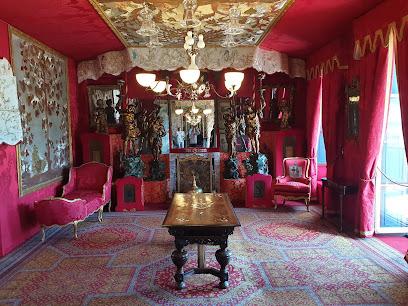
Grosnez Castle
Discover the historical allure and stunning coastal views at Grosnez Castle, a must-see attraction in Jersey that showcases the island’s rich heritage.
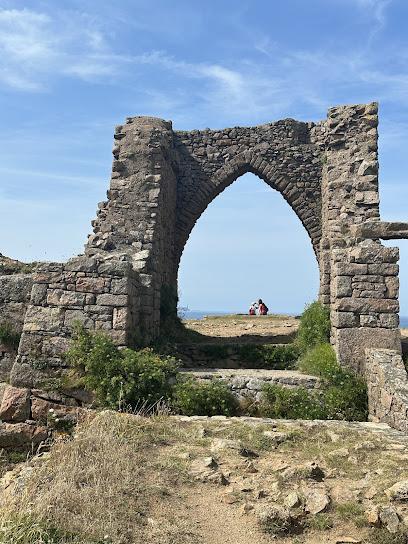
German Occupation Museum
Explore the poignant history of Guernsey during WWII at the German Occupation Museum, offering deep insights into life under German rule.
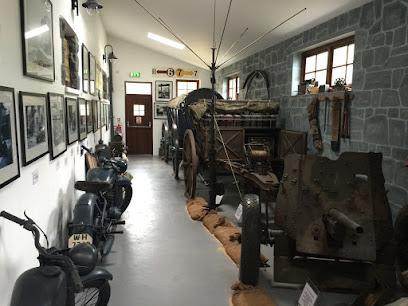
Hamptonne Country Life Museum
Explore Jersey's rural heritage at Hamptonne Country Life Museum, featuring historic buildings, beautiful gardens, and engaging exhibits.
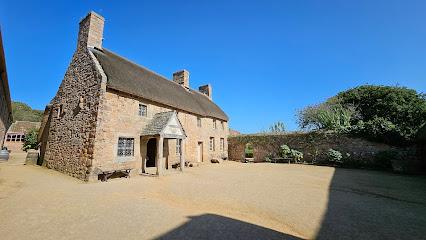
Beauport Beach
Experience the tranquil beauty of Beauport Beach in Jersey, where golden sands meet stunning cliffs and breathtaking sunsets await.
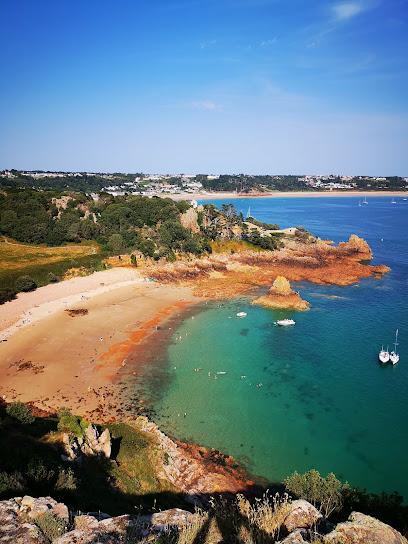
St Peter Port Harbour
Explore the stunning St Peter Port Harbour in Guernsey, with scenic views, charming shops, and delightful dining experiences by the sea.
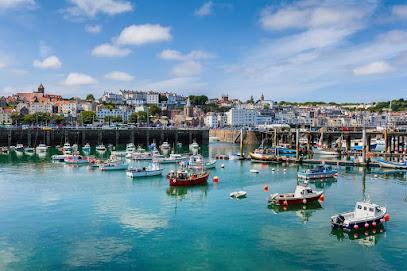
Essential places to dine
The Rockmount - Randalls
Discover the culinary delights of The Rockmount in Guernsey - where local flavors meet coastal charm at this premier gastropub.
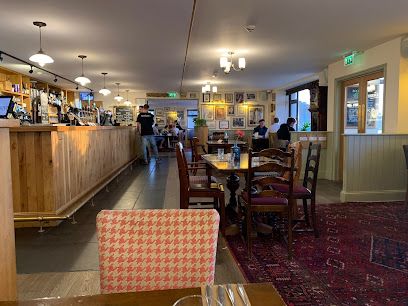
Crabby Jack's
Discover fresh seafood and stunning views at Crabby Jack's, your ultimate dining destination by Vazon Bay in Guernsey.
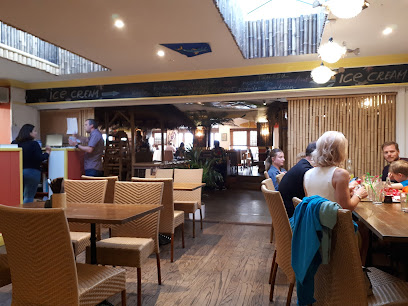
Dhaka
Discover the culinary treasures of Dhaka, where every meal tells a story and every bite takes you on a flavorful journey.
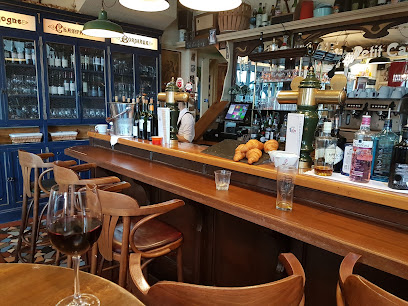
Cobo Bay Hotel & The Beach Terrace
Discover the beauty of Guernsey at Cobo Bay Hotel & The Beach Terrace - where coastal charm meets exceptional hospitality.

La Perla Restaurant
Experience exquisite local cuisine at La Perla Restaurant in Guernsey – where fresh ingredients meet culinary excellence.
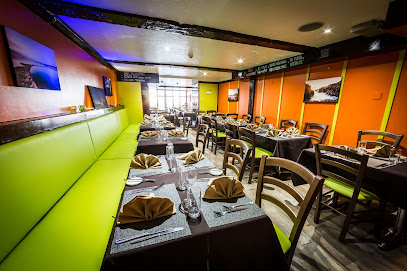
Fleur du Jardin
Discover Fleur du Jardin in Castel: A charming restaurant and pub offering delightful cuisine and cozy accommodations amidst Guernsey's beauty.

Le Nautique Restaurant
Discover unparalleled seafood dining at Le Nautique Restaurant in St Peter Port - where oceanic flavors meet breathtaking views.
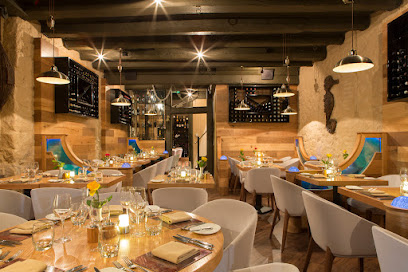
The Queens Inn - Randalls
Experience the flavors of Guernsey at The Queens Inn - where local ingredients meet warm hospitality in a charming setting.
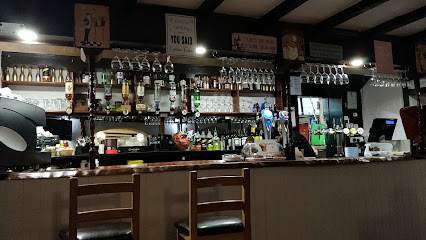
Pier 17 Restaurant
Discover exquisite seafood dining with breathtaking views at Pier 17 Restaurant in Guernsey.
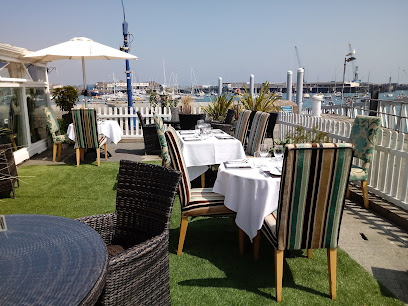
The Pony Inn & Brasserie
Discover delicious local flavors at The Pony Inn & Brasserie, a premier gastropub in Guernsey offering exquisite dishes and a vibrant bar scene.
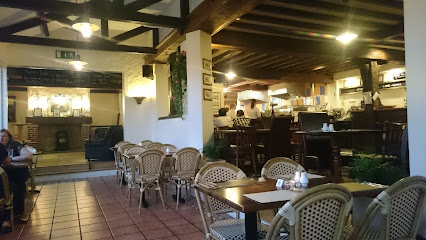
Búho
Discover authentic Mexican flavors at Búho in Guernsey, where every meal is a fiesta of taste and tradition.
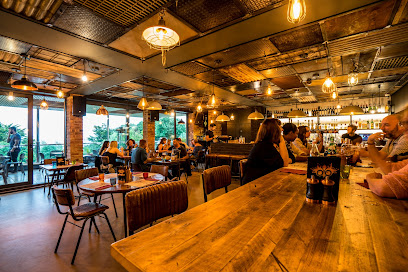
The Kiln
Discover The Kiln in Oatlands Village - A culinary delight showcasing fresh local ingredients in a cozy setting perfect for tourists.
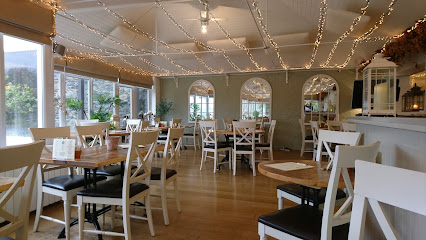
The Old Quarter Restaurant
Experience authentic British and European cuisine at The Old Quarter Restaurant in Guernsey - where local flavors meet warm hospitality.
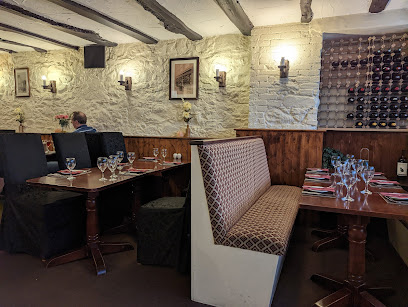
The Lobster and Grill
Experience exquisite seafood dining at The Lobster and Grill in Guernsey - where fresh flavors meet stunning scenery.
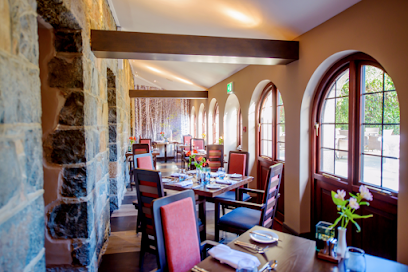
Le Friquet Hotel
Discover exquisite dining and comfortable accommodations at Le Friquet Hotel in beautiful Guernsey.

Markets, malls and hidden boutiques
Guernsey Candles
Discover the charm of Guernsey Candles, where you can create your own unique candles and explore a variety of handcrafted gifts in a warm, inviting atmosphere.
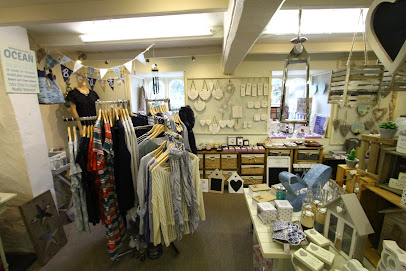
Keyprice
Explore Keyprice, Guernsey's charming general store, where local flavors and warm community spirit meet for an unforgettable shopping experience.

Alderney Museum
Explore Alderney Museum - A treasure trove of maritime history and cultural heritage awaits you on this picturesque island.
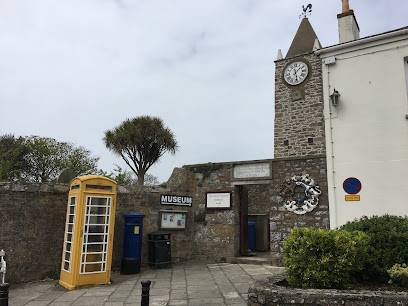
Iris & Dora Studios
Explore the artistic treasures at Iris & Dora Studios in Guernsey, where local craftsmanship meets vibrant creativity in a delightful gift shop setting.
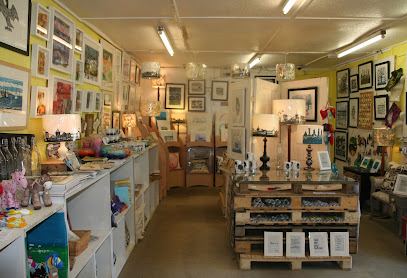
Le Cocq's Stores - Le Huret
Discover the charm of Guernsey at Le Cocq's Stores, your go-to supermarket for local products and everyday essentials in St Anne.
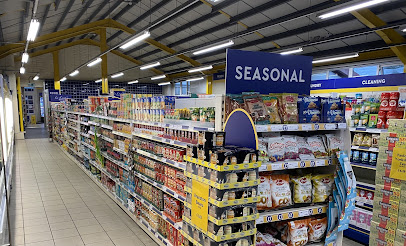
Vinyl Vaughan
Discover the melodic treasures of Vinyl Vaughan, a must-visit record store in St. Anne, Guernsey, for music lovers and collectors alike.
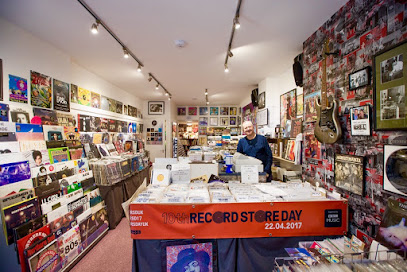
Cycle & Surf
Explore Guernsey's stunning landscapes with Cycle & Surf, your premier bicycle rental service for unforgettable adventures.
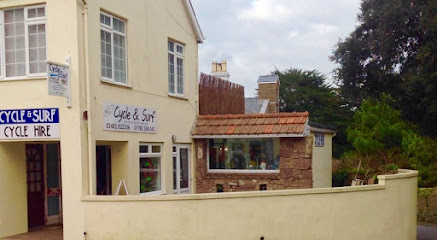
Le Cocqs Stores - Freezer Centre
Discover local flavors and essential goods at Le Cocqs Stores in St. Anne, Guernsey's favorite supermarket for tourists and locals alike.
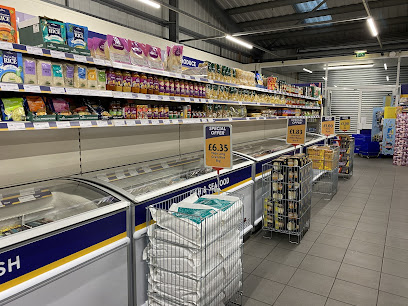
National Trust of Guernsey Victorian Shop and Parlour at 26 Cornet Street
Discover unique crafts and historical treasures at the National Trust of Guernsey Victorian Shop and Parlour, where the past meets the present.
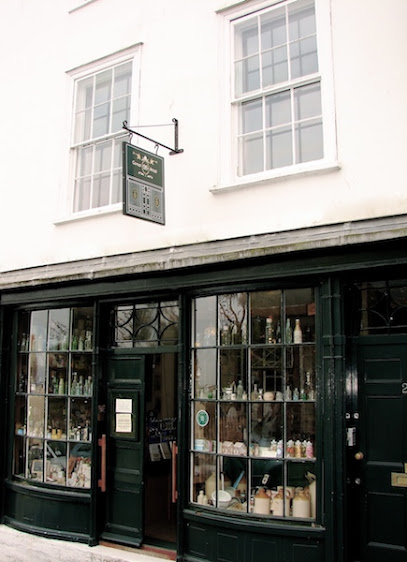
Cadeaux Guernsey Gift Shop
Explore the enchanting Cadeaux Guernsey Gift Shop for unique souvenirs and local crafts that capture the spirit of Guernsey.
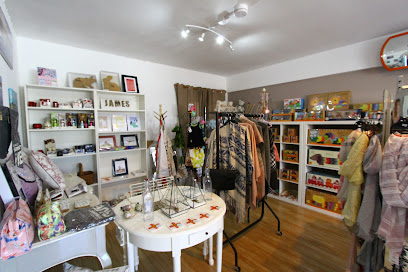
The Guernsey Shop
Explore The Guernsey Shop for unique gifts and authentic local treasures that embody the spirit of the island.
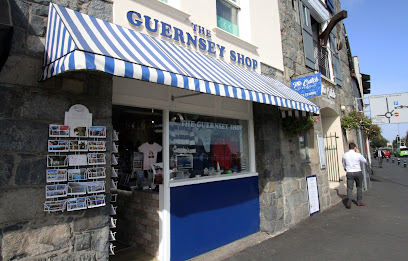
The Old Tea Room Alderney
Discover the quaint charm of The Old Tea Room Alderney, where delicious teas and homemade treats await in a cozy setting.
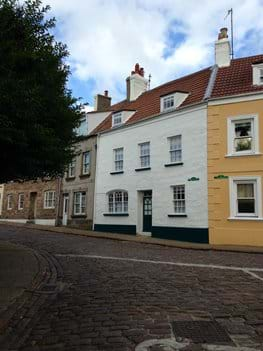
Channel Jumper
Explore the charm of Channel Jumper in St Anne, Guernsey, where exquisite hand-knit garments meet local craftsmanship.
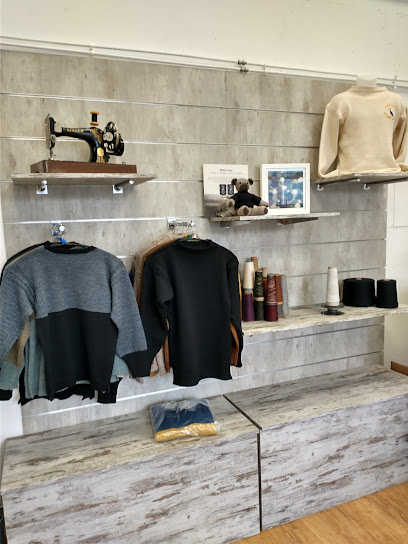
McAllister's Wet fish Shop (Fish Mongers)
Experience the freshest seafood at McAllister's Wet Fish Shop in St Anne, Guernsey, where local flavors and friendly service meet.

Alderney Flower Shop
Discover the enchanting Alderney Flower Shop in St. Anne, where vibrant blooms and expert floristry create a floral paradise for all visitors.
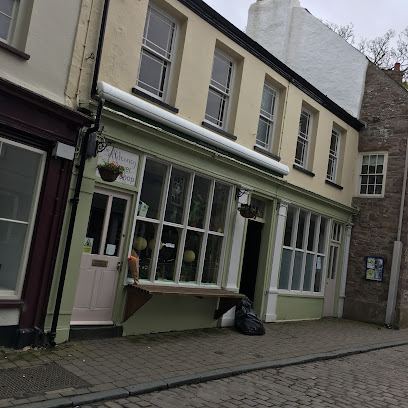
Essential bars & hidden hideouts
Thomas De La Rue
Discover the vibrant atmosphere of Thomas De La Rue, a must-visit pub in Guernsey offering delicious food, drinks, and unforgettable experiences.
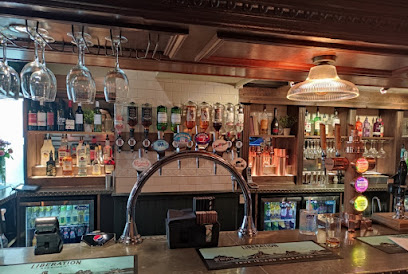
The Cock and Bull
Experience the vibrant atmosphere of The Cock and Bull, a lively pub in St. Peter Port, Guernsey, offering craft beers and live music.
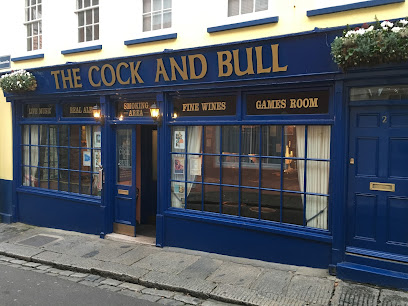
The Doghouse
Experience the vibrant ambiance and delicious grill cuisine at The Doghouse in Guernsey, a top destination for food and live entertainment.
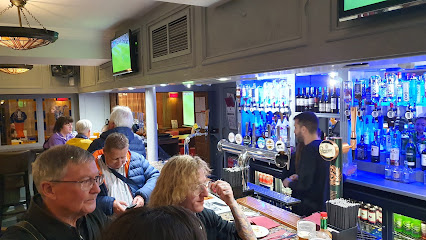
The Georgian House
Experience the warmth and hospitality of The Georgian House in St. Anne, a charming bar, hotel, and restaurant offering delightful food and drinks.
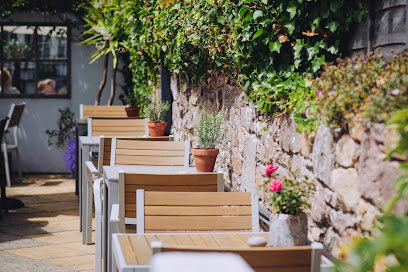
CORNERSTONE Social House
Experience the perfect blend of fine dining and pub atmosphere at CORNERSTONE Social House in St Peter Port, Guernsey.
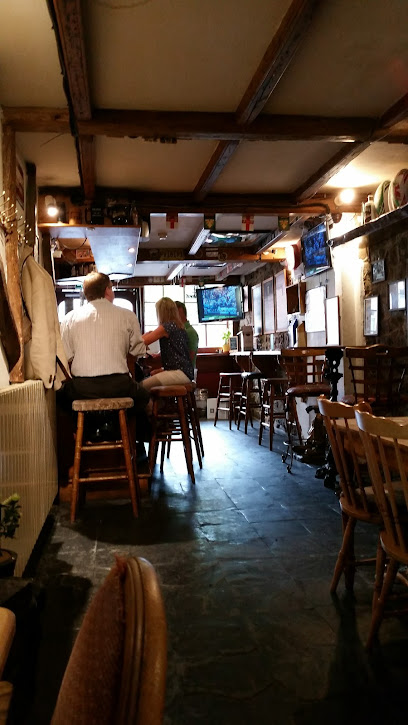
The Swan Inn
Experience the warm ambiance and local flavor at The Swan Inn, a charming bar in Guernsey known for its inviting atmosphere and diverse drink selection.
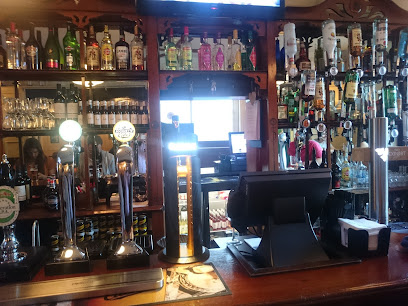
The Moorings
Experience the warmth of The Moorings, a charming bar in St. Anne, with local drinks, delicious food, and a friendly atmosphere.
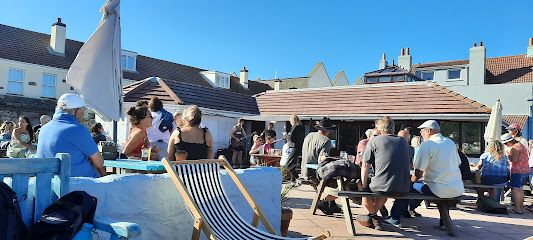
The Red Lion - Randalls
Discover the charming ambiance and local flavors at The Red Lion, Guernsey's favorite pub with a welcoming atmosphere and hearty menu.
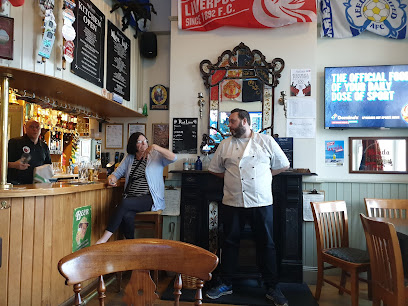
La Fontaine Inn - Randalls
Experience the warmth and flavor of Guernsey at La Fontaine Inn - Randalls, your perfect pub getaway for delightful meals and refreshing drinks.
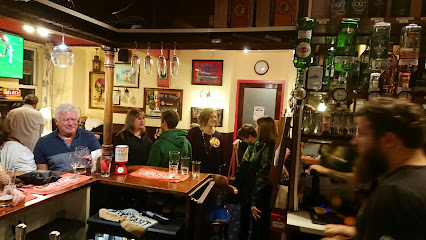
The Divers Inn
Experience the inviting atmosphere and local flavor at The Divers Inn, Alderney's charming pub offering delicious food and drinks.
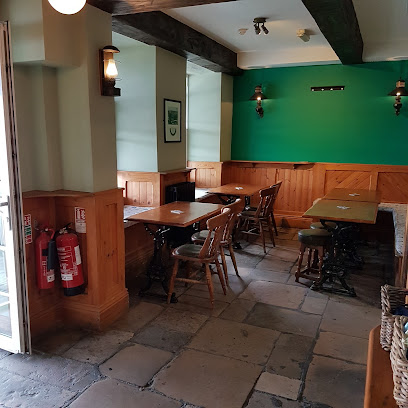
Marais Hall
Experience the taste of Guernsey at Marais Hall, where flavorful dishes and a cozy atmosphere await every visitor.
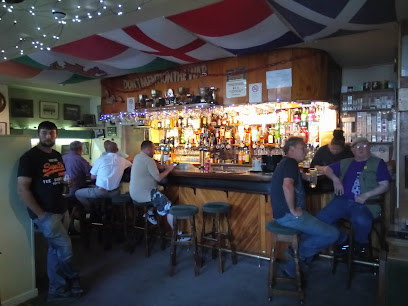
JB Parkers' Bar & Cellar
Experience the vibrant culinary scene at JB Parkers' Bar & Cellar, where exceptional food meets an impressive cocktail and wine selection in Guernsey.
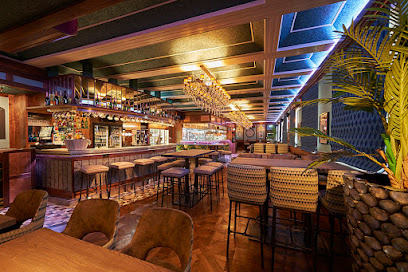
The Campania
Experience the heart of Guernsey at The Campania Pub, a charming spot for local brews, hearty meals, and friendly faces.
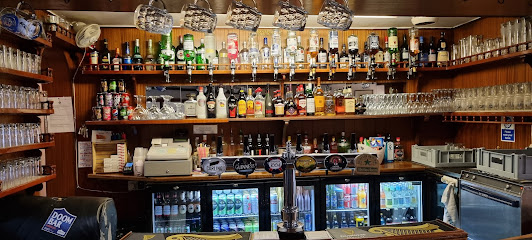
The Blonde Hedgehog Hotel
Discover comfort and charm at The Blonde Hedgehog Hotel, your ideal retreat in the heart of St Anne, Guernsey.

Local Phrases
-
- HelloBonjour
[bon-zhoor] - GoodbyeAu revoir
[oh rev-wahr] - YesOui
[wee] - NoNon
[nohn] - Please/You're welcomeS'il vous plaît / De rien
[see voo pleh / duh ryan] - Thank youMerci
[mehr-see] - Excuse me/SorryPardon/ Désolé
[par-dohn / day-zoh-lay] - How are you?Comment ça va?
[kom-mohn sah vah] - Fine. And you?Bien. Et toi?
[byahn. ay twah] - Do you speak English?Parlez-vous anglais?
[par-lay voo ahn-glay] - I don't understandJe ne comprends pas
[zhuh nuh kohm-prahn pah]
- HelloBonjour
-
- I'd like to see the menu, pleaseJe voudrais voir le menu, s'il vous plaît
[zhuh voo-dray vwar luh muh-nyuh, see voo pleh] - I don't eat meatJe ne mange pas de viande
[zhuh nuh mahnj pah duh vee-ahnd] - Cheers!Santé!
[sahn-tay] - I would like to pay, pleaseJe voudrais payer, s'il vous plaît
[zhuh voo-dray pay-yay, see voo pleh]
- I'd like to see the menu, pleaseJe voudrais voir le menu, s'il vous plaît
-
- Help!Au secours!
[oh suh-coor] - Go away!Allez-vous en!
[ah-lay vooz ahn] - Call the Police!Appelez la police!
[ah-play lah poh-lees] - Call a doctor!Appelez un médecin!
[ah-play uh may-duh-sahn] - I'm lostJe suis perdu
[zhuh swee pair-doo] - I'm illJe suis malade
[zhuh swee mah-lahd]
- Help!Au secours!
-
- I'd like to buy...Je voudrais acheter...
[zhuh voo-dray ah-shuh-tay] - I'm just lookingJe regarde juste
[zhuh ruh-gahrd zhuhst] - How much is it?Combien ça coûte?
[kohm-byahn sah koot] - That's too expensiveC'est trop cher
[say troh shay] - Can you lower the price?Pouvez-vous baisser le prix?
[poo-vay voo bay-say luh pree]
- I'd like to buy...Je voudrais acheter...
-
- What time is it?Quelle heure est-il?
[kel uhr ay-teel] - It's one o'clockIl est une heure
[eel ayz oon uhr] - Half past (10)Dix et demi
[dees ay duh-mee] - MorningMatin
[mah-tahn] - AfternoonAprès-midi
[ah-pray mee-dee] - EveningSoir
[swahr] - YesterdayHier
[ee-ehr] - TodayAujourd'hui
[oh-zhoor-dwee] - TomorrowDemain
[duh-man] - 1Un
[uhn] - 2Deux
[duh] - 3Trois
[twah] - 4Quatre
[kah-truh] - 5Cinq
[sank] - 6Six
[sees] - 7Sept
[sept] - 8Huit
[weet] - 9Neuf
[nuff] - 10Dix
[dees]
- What time is it?Quelle heure est-il?
-
- Where's a/the...?Où est...?
[oo ay] - What's the address?Quelle est l'adresse?
[kel ay la-dres] - Can you show me (on the map)?Pouvez-vous me montrer (sur la carte)?
[poo-vay voo muh mohn-tray (soor lah kart)] - When's the next (bus)?Quand est le prochain (bus)?
[kahnd ay luh proh-shahn (boos)] - A ticket (to ....)Un billet (pour ....)
[uhn bee-yay (poor)]
- Where's a/the...?Où est...?
History of St. Anne
-
St. Anne, the capital of Alderney in the Bailiwick of Guernsey, traces its origins back to the early medieval period. Its strategic location in the English Channel made it an attractive settlement for seafaring communities. The town's development was significantly influenced by the Norman Conquest of the Channel Islands in 933 AD, when the islands, including Alderney, came under the control of the Duchy of Normandy.
-
During the reign of Queen Elizabeth I, St. Anne became a focal point of military and maritime activity. The construction of Fort Essex in the late 16th century was a testament to the town's strategic importance. This period also saw the establishment of defensive structures and the growth of the local population, largely driven by the need to guard against potential French invasions.
-
The Napoleonic Wars (1803-1815) marked a significant chapter in the history of St. Anne. The British government invested heavily in fortifying the island to protect against French aggression. Fort Albert, named after Queen Victoria’s consort, Prince Albert, was constructed during this period. The fortifications bolstered the town's defenses and played a crucial role in safeguarding the Channel Islands.
-
The Victorian era brought significant changes to St. Anne, marked by industrialization and modernization. The construction of the Breakwater in 1847, one of the largest engineering projects of its time, transformed the town's harbor, facilitating increased maritime trade. Victorian architecture flourished, with the construction of notable buildings like the St. Anne's Church, which remains a prominent landmark.
-
St. Anne, along with the rest of Alderney, was occupied by German forces during World War II from 1940 to 1945. The island was heavily fortified as part of Hitler's Atlantic Wall, and the local population was evacuated. The Nazis constructed several bunkers, gun emplacements, and forced labor camps, which have left a lasting imprint on the town's landscape. Liberation came in May 1945, and the islanders gradually returned to rebuild their lives.
-
After World War II, St. Anne underwent a period of reconstruction and revival. The town's infrastructure was restored, and efforts were made to preserve its historical heritage. Tourism emerged as a vital industry, with visitors drawn to the town's rich history, charming architecture, and scenic beauty. St. Anne continues to thrive as a vibrant community, proud of its unique cultural and historical legacy.
St. Anne Essentials
-
St. Anne is located on the island of Alderney, which is part of the Bailiwick of Guernsey in the Channel Islands. The most convenient way to reach St. Anne is by taking a flight to Guernsey Airport (GCI), which has regular connections from the UK and other European cities. From Guernsey, you can take a short flight via Aurigny Airlines to Alderney Airport (ACI). Alternatively, there are ferry services operated by Manche Iles Express that connect Alderney with Guernsey and the French port of Dielette.
-
Transportation in St. Anne is straightforward due to the island's small size. Walking is the most common way to get around. For longer distances, taxis are available and can be booked in advance. There is also a limited bus service operated by Alderney Community Transport. Bicycles can be rented for a more scenic exploration of the island. For those who wish to drive, car rentals are available, but be aware that the island's narrow roads can be challenging for drivers unfamiliar with the area.
-
The official currency in Alderney is the British Pound (GBP). Credit and debit cards are widely accepted in most hotels, restaurants, and shops, but it is advisable to carry some cash for smaller establishments or local markets. ATMs are available in St. Anne, although they may charge a fee for withdrawals. Some businesses may also accept Euros, but it is not guaranteed.
-
St. Anne is generally a very safe destination for tourists. Crime rates are low, and the community is close-knit. However, it is still wise to take standard precautions such as keeping an eye on your belongings, especially in crowded areas or during events. There are no specific high-crime areas targeting tourists, but it is always best to stay vigilant.
-
In case of emergency, dial 999 for police, fire, or medical assistance. The island has a small hospital, the Mignot Memorial Hospital, which can handle most medical needs. For more serious medical emergencies, patients may need to be transferred to Guernsey or the UK. Pharmacies are available in St. Anne for over-the-counter medications. It is strongly recommended to have travel insurance that covers medical emergencies and evacuations.
-
Fashion: Do dress comfortably and casually, but bring a jacket as the weather can be unpredictable. Avoid overly revealing clothing. Religion: Do respect local customs and traditions. There are several churches on the island, and modest attire is appreciated when visiting. Public Transport: Do be patient with the limited public transport options. Taxis often need to be booked in advance. Greetings: Do greet locals with a friendly 'hello' or 'good morning/afternoon'. Handshakes are common. Eating & Drinking: Do try local seafood and traditional dishes. Avoid refusing hospitality, as it may be considered impolite.
-
To experience St. Anne like a local, visit the local markets and small shops where you can find unique souvenirs and fresh produce. Engage with the friendly locals, who are often happy to share stories and tips about the island. Don't miss the Alderney Museum to learn about the island's rich history. For a unique experience, attend one of the local events or festivals, which offer a glimpse into the island's vibrant community life.
Trending Landmark in St. Anne
Nearby Cities to St. Anne
-
Things To Do in St. Sampson
-
Things To Do in St. Peter Port
-
Things To Do in St. Martin
-
Things To Do in St. Andrew
-
Things To Do in Vale
-
Things To Do in Forest
-
Things To Do in Castel
-
Things To Do in St. Saviour
-
Things To Do in St. Ouen
-
Things To Do in St. Peter
-
Things To Do in St. Lawrence
-
Things To Do in St. Brelade
-
Things To Do in Trinity
-
Things To Do in St. Aubin
-
Things To Do in St. Helier








